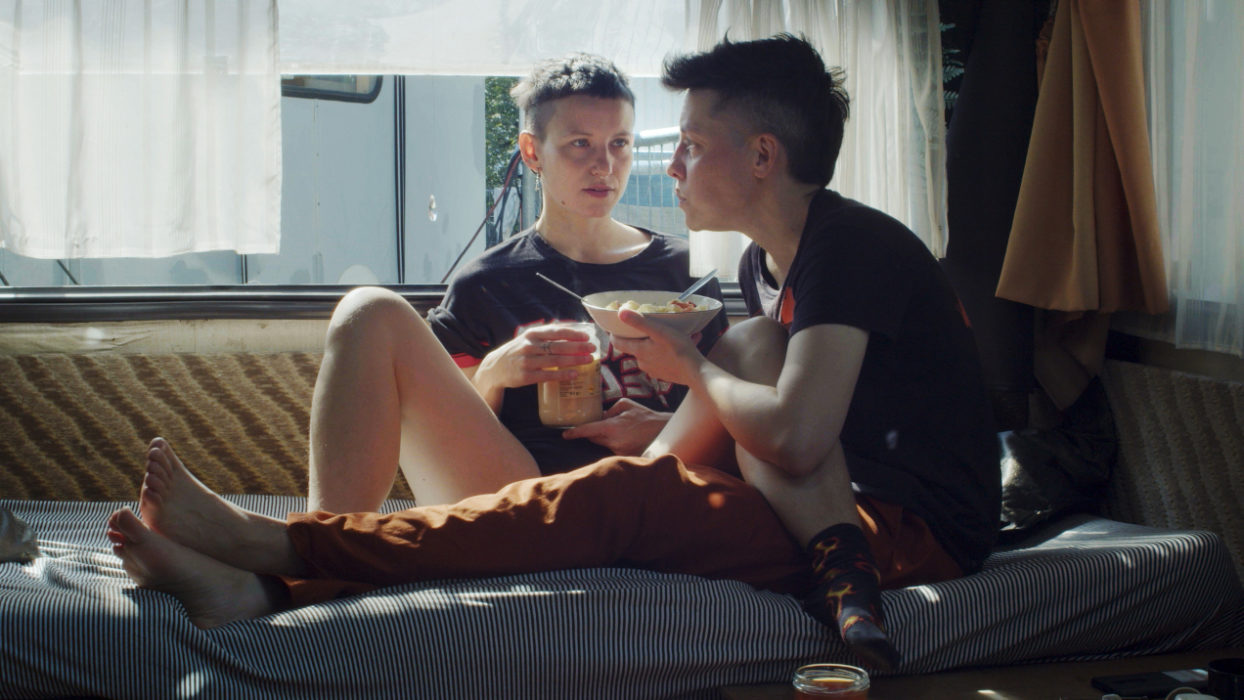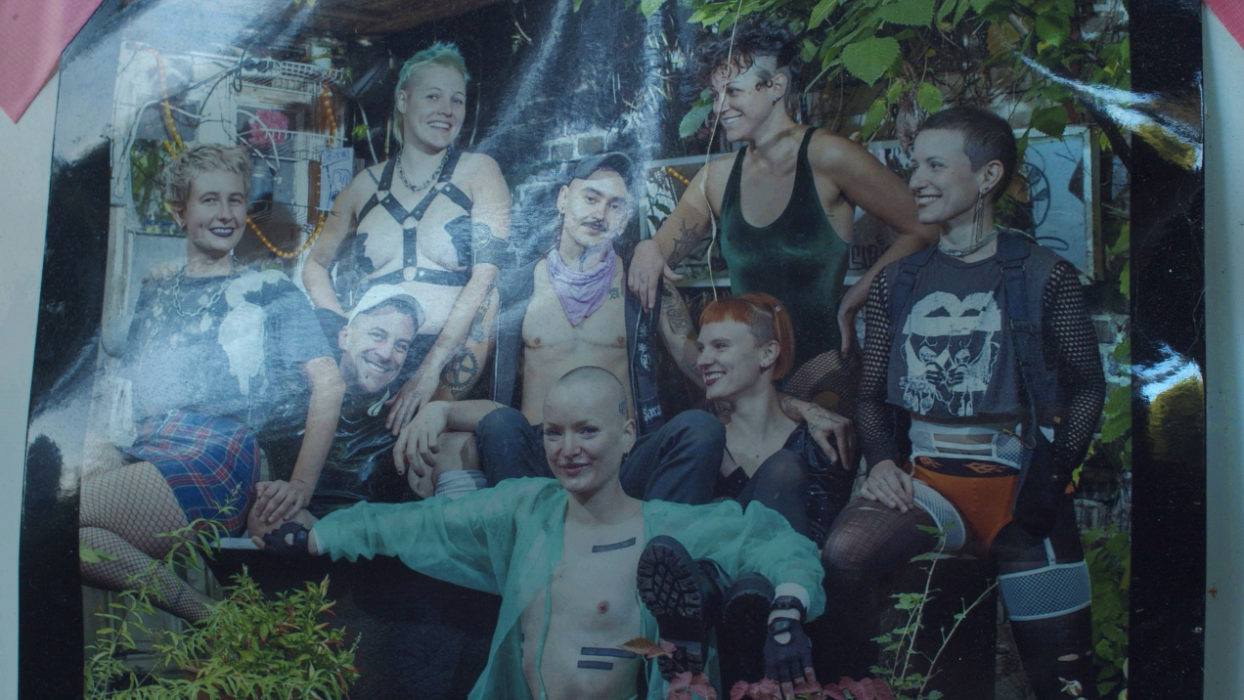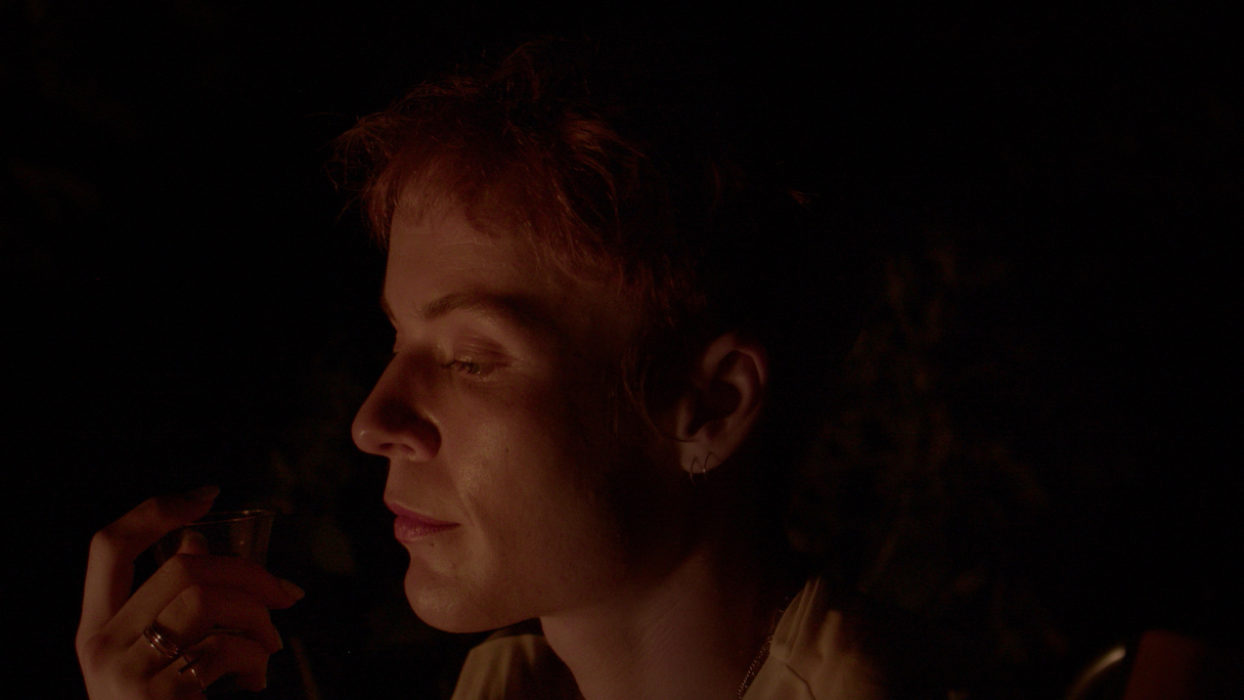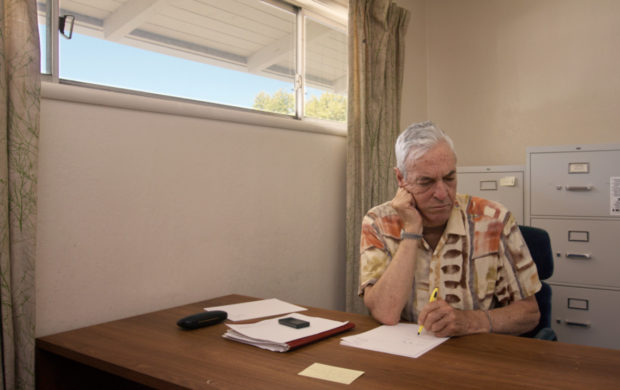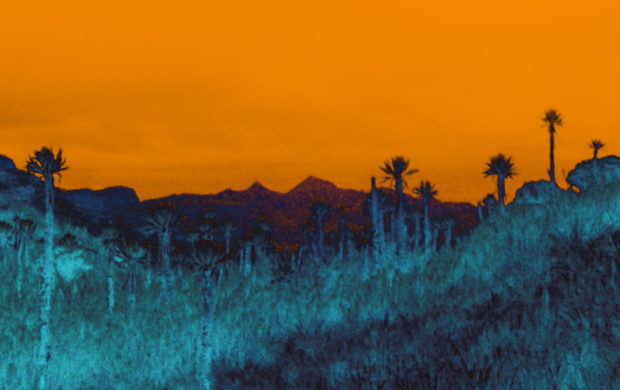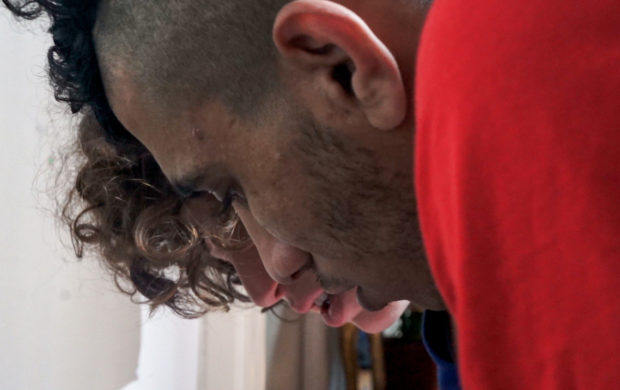The Garden Cadences
Jone is ready to fly. She finds herself at the beginning of something new, but before she moves on, there needs to be closure. Jone is one of Mollies, the queer-feminist collective that had been living for a decade at a trailer park next to Ostkreuz, Berlin. The film traces their last summer before being evicted.
The place here portrayed by Dane Komljen (Afterwater, Cinéma du Réel 2022) no longer exists. A queer community called the Mollies used to live in this garden planted inside an old industrial site, in Berlin’s Ostkreuz neighbourhood. They have since been evicted to make way for a new state-of-the-art aquarium, supposedly designed to “showcase the beauty of marine ecosystems and encourage a deep understanding of their vulnerability—from the depths to the sunlit surface.” Although gentrification is only tangentially touched upon in The Garden Cadences, where the future of the site is only hinted at by the ominous presence of cranes on the horizon, the film is also home to an ecosystem: it gives shelter to a vulnerability and induces a slow exchange between the depths and the surface. In sharing the community’s private activities—sleeping, reading, holding meetings, showering—Komljen moves away from the parties, slipping instead into a lazier pace, tuning in to the movement of slugs and to the blossoming of the garden in spring. The touch of skin meets the brush of plants. While some protagonists are transitioning to a new gender, others acknowledge the end of a cycle and are eager to move forward. The garden is not just a physical space, but one that leads to other gardens, other states, and other relationships from the past. “Something was there, now it’s gone, it’s not there anymore, it was.”
Antoine Thirion
Born in 1986 in Banja Luka, SFR Yugoslavia, Dane Komljen studied cinema and art. He made two features, All the Cities of the North and Afterwater (Cinéma du réel 2022), along numerous short. He works and lives in Berlin.
